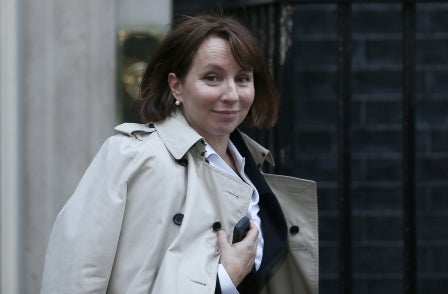
More women than ever are training to be journalists.
According to the Universities and Colleges Admissions Service (UCAS), there are more women than men studying journalism on full-time undergraduate courses.
The figures, measuring numbers from 2007 to 2014, show that women on these courses outnumbered men every year except 2008 when the numbers were roughly equal. But women remain a minority in the top journalistic roles.
As an accreditation assessor and external examiner for the National Council for the Training of Journalists, BBC Radio Leicester news and sport editor Kay Wright regularly visits universities to meet undergraduate and postgraduate students. She finds many of the female students she speaks to want to take the "traditional female" route into magazine journalism in lifestyle areas.
She said: “I am often disappointed by the numbers of females who have already made their minds up to go into magazine journalism as a career choice, specialising in traditional female topics such as fashion and beauty and celebrity. I come across very few who aspire to be ‘hard news’ print journalists.
“A large proportion see an initial career in print journalism merely as a stepping stone into broadcast journalism and 'hopefully a career in telly'. Certainly, in all the years I’ve dealt with students, no females have expressed an ambition to become a newspaper editor.”
In an article for The Conversation, Professor Suzanne Franks, head of undergraduate journalism at City University, said that women in news organisations are encouraged to “do the softer feature lifestyle stories and discouraged from the harder end of news”.
In the same article, Franks talked about how while “women substantially outnumber men in journalism training and enter the profession in (slightly) greater numbers, still only a relative few rise to senior jobs".
She said: “I was surprised by this huge imbalance of girls doing journalism training. I didn’t realise it was such a disproportionately women’s subject. There are all these women coming in – but where do they go?”
Sarah Sands, editor of the London Evening Standard (pictured), believes the situation is improving for women in journalism. “There are more female editors now than there have been for a while,” she said. “An interesting point is the difference it makes to the way women are portrayed by the media, [in that] they are now taken more seriously. I have certainly noticed the changes.”
According to Franks, a top News International figure once said that if in 1994 there were three national newspaper editors who were women, there should have been ten female editors by 2000.
Looking at the 24 UK national newspaper titles (including the Scottish nationals and the Evening Standard) there are now six female editors: Dawn Neesom at the Daily Star, Sarah Sands of the London Evening Standard, Lisa Markwell at The Independent on Sunday, The Sun on Sunday's Victoria Newton, Daily Mirror weekend editor Alison Phillips and newly appointed Guardian editor Katharine Viner.
Wright, said: “Having worked on national newspapers, it’s the most highly competitive, often aggressive, male-dominated environment I’ve experienced. Many women survive for years in those conditions. But, in my view, it’s only those women prepared to match that kind of behaviour who thrive.
“Sexism and antediluvian attitudes towards women in charge are rife and, in my experience, the men make it really hard for women in power to wield any authority with conviction.”
Wright was the first female political editor on the Leicester Mercury and believes the atmosphere is different in the regional press.
She said: “It was only when I worked in the national press that I was aware of sexist and misogynistic attitudes, cultures and behaviours.
“Since moving to the BBC, I have never been aware of being held back by my sex. I was promoted to senior broadcast journalist by a male editor shortly after joining BBC Leicester and have been part of a female-dominated management team for years. Two of my long-term editors are women.”
Wright believes the job of ensuring more women rise to the top of the journalism industry needs to begin before they even enter the industry.
“It needs to start in schools, colleges and universities which need to develop ways of empowering female students so they aspire to the top roles as well as equipping them with the necessary skills [to be able to do this],” she said.
She believes this could include preparing female students on resisting the chauvinism if they may encounter in the workplace.
She added: “Women in senior positions in journalism need to actively and collectively support, nurture, mentor and develop other women in the profession.”
Email pged@pressgazette.co.uk to point out mistakes, provide story tips or send in a letter for publication on our "Letters Page" blog
